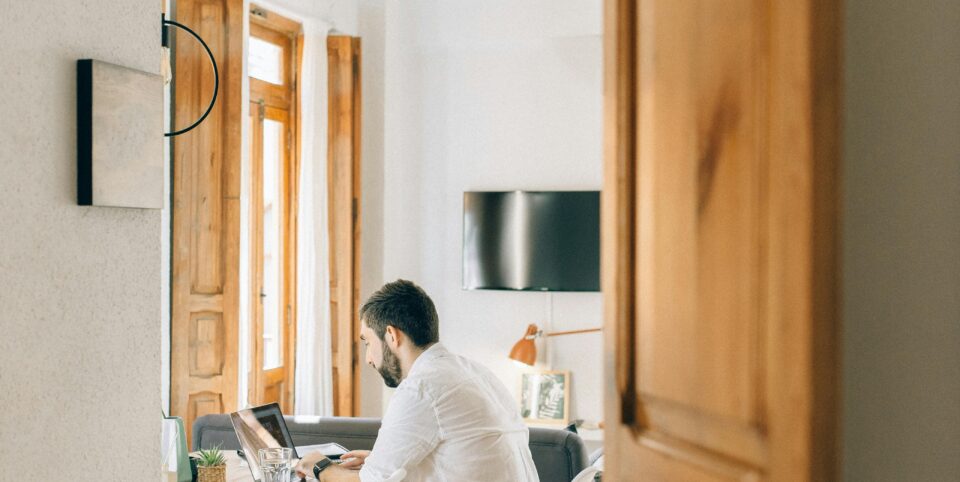Contact
020 4515 6728
info@ccameron.co.uk
Charles Cameron & Associates
Blackfriars Foundry
154-156 Blackfriars Road
London SE1 8EN
Understanding what you can afford to borrow for a mortgage
February 12, 2025
Information published was correct at the time of writing
Buying a home doesn’t stop at the deposit. Don’t overlook expenses such as stamp duty, conveyancing fees, survey costs, and mortgage application fees, which could collectively add about 7% to the total purchase price.

Finding the right balance requires careful consideration of several factors
One of the first steps when buying a home is determining exactly how much you can afford to borrow for a mortgage. Many buyers aim to purchase the biggest house they can afford without compromising their ability to meet monthly expenses. Finding the right balance requires careful consideration of several factors.
You’ll need to evaluate your income, job stability, and prospects for pay rises. Additionally, costs such as moving, potential renovations, and monthly living expenses must be included in your calculations. Your expectations about property prices and mortgage rates will also play a role, as will your financial safety net, which could include savings or family assistance. Importantly, you should consider how much risk and debt you’re comfortable taking on.
Breaking down affordability
By addressing these critical points, you can forecast the extra costs of moving, the funds needed to maintain your lifestyle, and how financially stretched you’re willing to be. Mortgage lenders generally allow borrowers to secure loans worth between 4.5 to 5.5 times their salary. However, they also conduct detailed affordability assessments that consider both your income and your outgoings.
Lenders will analyse a range of income sources, including basic salary, bonuses, pensions, additional jobs, and even child maintenance payments. To confirm your financial standing, they’ll require documentation such as payslips or bank statements. Self-employed applicants often need to provide two or three years’ worth of tax returns and business accounts to show income stability.
Outgoings and credit scores
Your outgoings are equally critical to lenders. Monthly expenses such as council tax, energy bills, and childcare costs, along with loan repayments and even grocery spending, will be scrutinised. They’ll also check your credit score, a vital factor in determining how much you can borrow and at what interest rate.
Lenders may also conduct a ‘stress test’ to assess whether you can handle repayments if circumstances change. This could include interest rate hikes or changes in income. This level of scrutiny ensures that you don’t end up overextending yourself financially.
Importance of your deposit
Most homebuyers will be required to save a deposit, typically at least 5% of the property’s value. However, having more than the minimum deposit often opens up a wider range of mortgage options and increases access to more competitive interest rates, lowering monthly payments. For instance, lenders may prefer a 10% deposit, and larger contributions which can make a real difference to affordability.
If saving for a deposit, it helps to create a household budget and explore options like Lifetime ISAs, family support, or selling existing assets. Once you’ve calculated your deposit amount, don’t forget to factor in costs like fees for solicitors and surveys, as well as moving and set-up expenses.
Additional costs to consider
Buying a home doesn’t stop at the deposit. Don’t overlook expenses such as stamp duty, conveyancing fees, survey costs, and mortgage application fees, which could collectively add about 7% to the total purchase price. If you’re selling your current property, estate agent fees will also apply.
There may also be unforeseen costs, such as urgent renovations or essential repairs. For example, you might need to replace a broken boiler or update areas like the kitchen soon after purchasing your home. It’s crucial to set aside some funds for these possibilities.
Balancing ambitions with reality
Knowing how much you can afford doesn’t just mean calculating the deposit or your borrowing potential. Your total home-buying budget should include all the above-mentioned costs. If your ambitions exceed your budget, you may need to re-evaluate and scale back or find alternative ways to increase your funds.
Bear in mind that buying a house is only the first financial hurdle. Safeguarding your ability to live in and maintain your home is just as important. Mortgage affordability stretches far beyond the initial purchase price.
Evaluating ongoing mortgage payments
Once you have an idea of how much you’d like to borrow, investigate the likely monthly repayment costs for different mortgage types. Ask yourself whether the payment fits comfortably within your budget. A common guideline is to ensure your repayments don’t exceed 35% of your post-tax income.
If the mortgage is higher than your current rent and you’re already struggling to pay rent, it’s worth reconsidering. Also, remember to account for property-related bills such as council tax and insurance, which often come as surprises to first-time buyers. Stress test your finances against scenarios like interest rate increases or temporary income reductions.
Expert advice and the next steps
Navigating the mortgage process can be complex. Instead of relying solely on your bank, seek guidance from our mortgage specialists, who can find the right deal that suits your unique needs.
Our expert team will guide you, helping you secure a mortgage in principle (AiP) tailored to your circumstances. This preliminary offer identifies how much a lender is willing to loan based on your financial profile. When your property offer is accepted, we’ll then assist you in progressing to a full mortgage application.



